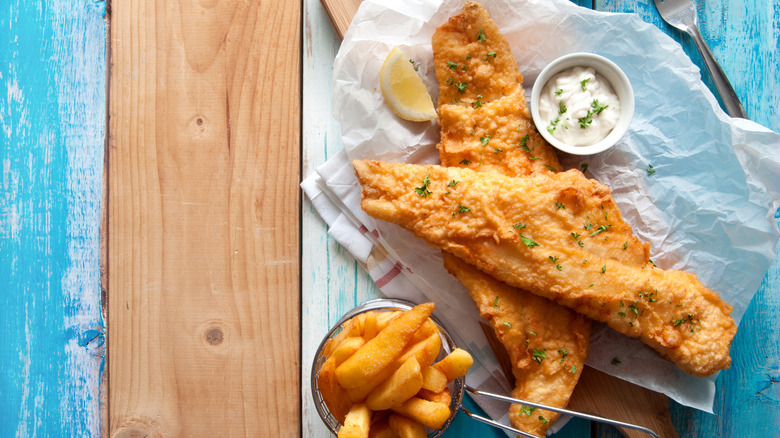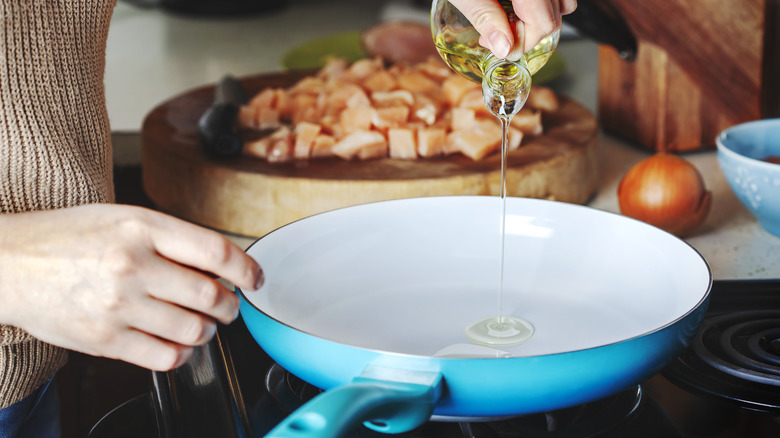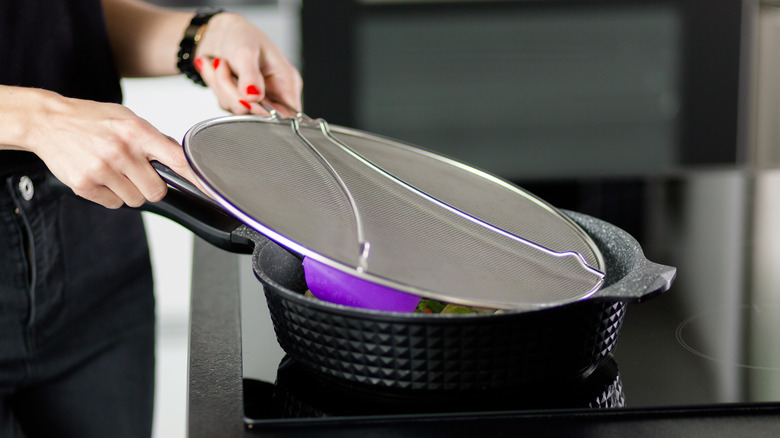Salt Is The Secret To Stopping Oil Splatters While Frying Fish And Other Foods
There's nothing like frying up a piece of perfectly crispy fish, whether paired with creamy romesco, beer-battered and served with fish and chips, or tucked into a homemade fried fish sandwich. But every home cook has experienced the sharp sting of frying oil as it rains down upon your kitchen as if being poured from a castle turret by some medieval guardsman.
While there are many methods to prevent such a kitchen-wide disaster, one of the simplest involves sprinkling a little bit of salt in your oiled pan before adding your fish or other ingredients. While this doesn't work for deep frying or oven roasting, it can be extremely useful for minimizing oil splatters when pan-frying or searing your dinner. There will still be a little bit of mess to contend with, but this hack will reliably keep you from wearing that $20 organic olive oil you splurged on. Simply sprinkle a little salt on top of the oil in your pan, and you should be good to go.
Why does salt prevent oil splatter?
When you think of oil splattering from a hot pan, what you're really experiencing doesn't happen because of the oil but because of the water it comes into contact with. Water and oil don't mix; they separate. So when the water inside your food hits a pan full of hot oil, it forms droplets that evaporate and carry bits of oil with them into the air, creating a small explosion.
The way to prevent this from happening is to reduce the amount of water that can interact with the oil. When you salt your pan, it helps to absorb some of the water droplets, preventing unfortunate splatter. This technique is in opposition to other popular anti-splatter efforts, such as using pans with high sides – or covering your pan with a lid. This will effectively steam your food, instead of searing it, by trapping both the water and oil inside. Using salt instead will keep your food crispy and allow it to cook evenly sans splatter.
Other ways to prevent oil splatters
When frying food, there are several other things you should keep in mind to minimize oil splatters. First off, make sure that both your pan and whatever you're cooking are as dry as possible before getting oil involved. Pat your fish, meat, or veggies down with a paper towel to reduce excess moisture. This will also help kickstart the Maillard reaction for added crispiness and browning.
You can also stick your fish or meat in the fridge, uncovered, for several hours to allow it to dry out somewhat (just make sure to keep it away from other uncovered fridge items to prevent contamination). Salting your meat for a few hours before you cook it (or overnight) will also help to draw out moisture. And, when in doubt, using a splatter screen is an easy way to keep hot oil from flying everywhere. It is one more thing to clean, but better that than your entire kitchen, right?



